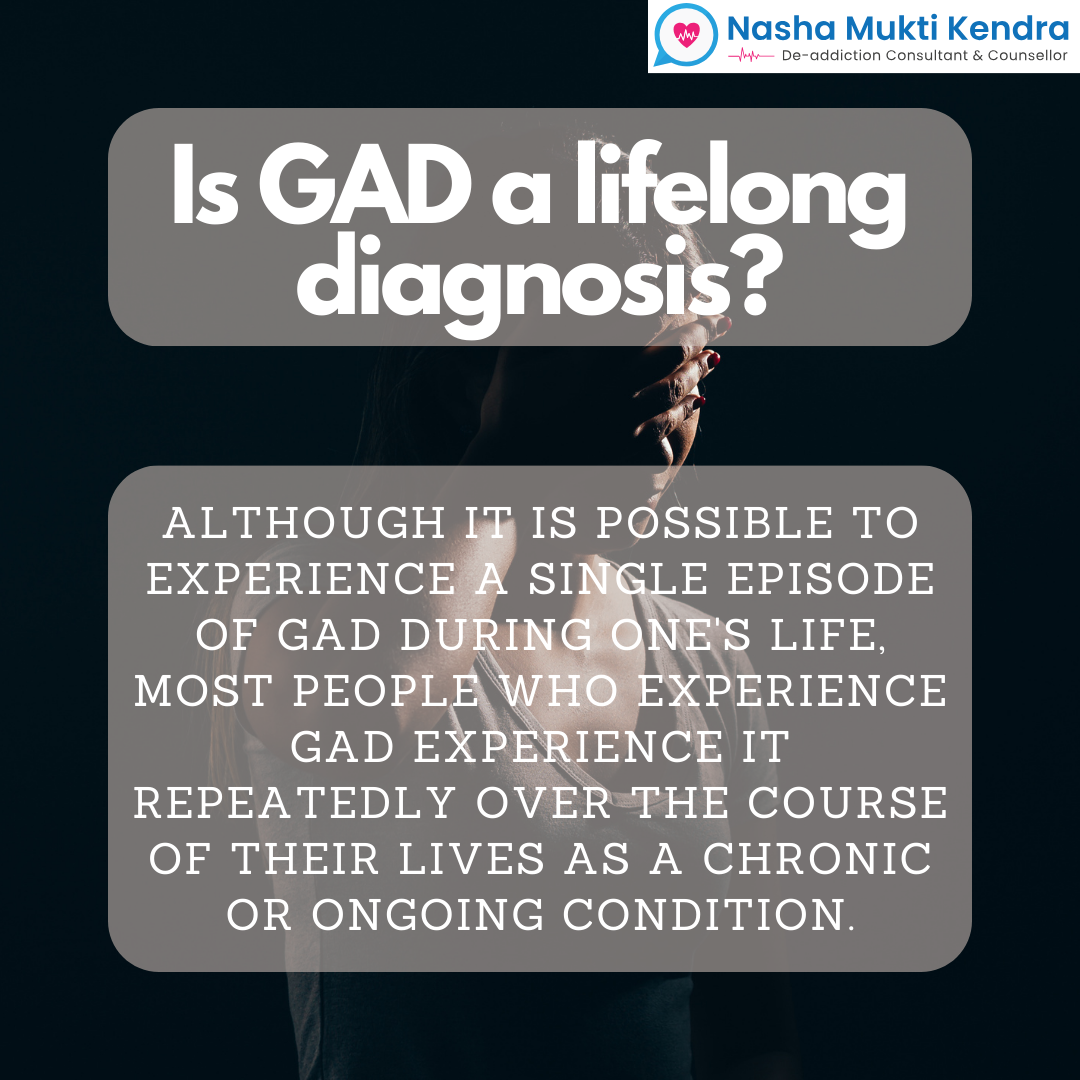Generalized Anxiety Disorder (GAD) is a common mental health condition characterized by excessive and persistent worry and anxiety about various aspects of life. It affects millions of people worldwide and can have a profound impact on an individual’s daily functioning and quality of life. In this comprehensive exploration of GAD, we delve into its signs and symptoms, various types, underlying causes, risk factors, and treatment options, shedding light on the often-overlooked aspects of this debilitating condition.
Signs and Symptoms of GAD
GAD is marked by a wide range of emotional and physical symptoms. Common emotional symptoms include excessive worry, restlessness, and a constant feeling of dread. Individuals with GAD may experience irritability, difficulty concentrating, and a persistent sense of apprehension. Physically, they often suffer from symptoms such as muscle tension, fatigue, sleep disturbances, and gastrointestinal discomfort.
Types of GAD
While GAD typically presents with a consistent set of symptoms, it can manifest differently in various individuals. Some common subtypes include:
- Generalized Anxiety Disorder with Panic Attacks: In this subtype, individuals experience sudden and intense panic attacks in addition to chronic worry.
- Generalized Anxiety Disorder with Social Anxiety: Some people with GAD may also struggle with social anxiety, which involves intense fear or anxiety in social situations.
- Generalized Anxiety Disorder with Specific Phobias: GAD can co-occur with specific phobias, leading to excessive anxiety related to particular objects or situations.
- Generalized Anxiety Disorder with Obsessive-Compulsive Disorder (OCD): GAD can overlap with OCD, resulting in persistent, intrusive thoughts and compulsive behaviors.
Causes of GAD
The exact cause of GAD remains unclear, but it is believed to result from a combination of genetic, environmental, and neurological factors. These potential causes include:
- Genetics: GAD can run in families, suggesting a genetic predisposition to the disorder.
- Brain Chemistry: An imbalance in neurotransmitters like serotonin and norepinephrine may play a role in GAD.
- Environmental Stressors: Traumatic experiences, chronic stress, or major life changes can trigger or exacerbate GAD.
- Personality Factors: Individuals with certain personality traits, such as perfectionism or a tendency to be overly cautious, may be more prone to GAD.
Risk Factors for GAD
Several risk factors can increase an individual’s likelihood of developing GAD:
- Family History: A family history of anxiety disorders can heighten the risk of GAD.
- Gender: Women are more likely than men to be diagnosed with GAD.
- Chronic Stress: Exposure to long-term stress, such as financial or relationship difficulties, can contribute to GAD.
- Childhood Trauma: Experiencing trauma or adverse events during childhood can raise the risk of GAD in adulthood.
- Substance Abuse: The use of drugs or alcohol can increase the risk of developing or exacerbating GAD.
Diagnosis and Assessment
Diagnosing GAD typically involves a comprehensive evaluation by a mental health professional. The diagnostic criteria often include a thorough review of the patient’s medical history, symptoms, and their duration. The healthcare provider may also use various assessment tools to determine the severity of GAD and its impact on the patient’s life.
Co-occurring Conditions
GAD often occurs alongside other mental health disorders, compounding the challenges faced by affected individuals. Some common co-occurring conditions include depression, other anxiety disorders, substance use disorders, and eating disorders. Treating GAD may involve addressing these comorbidities for a comprehensive approach to mental well-being.
Impact on Daily Life
GAD can have a profound impact on an individual’s daily life. Chronic worry and anxiety can interfere with work, relationships, and overall quality of life. Those with GAD may avoid certain situations or activities due to their anxiety, which can lead to isolation and a diminished sense of well-being.
Treatment and Management of GAD
The good news is that GAD is a treatable condition. Several effective treatments and strategies are available to help individuals manage their symptoms:
- Psychotherapy (Talk Therapy): Cognitive-Behavioral Therapy (CBT) is a widely used approach to treat GAD. It helps individuals identify and change negative thought patterns and behaviors.
- Medication: In some cases, healthcare providers may prescribe medication to manage the symptoms of GAD. These medications may include antidepressants and anti-anxiety drugs.
- Lifestyle Changes: Engaging in regular physical activity, maintaining a balanced diet, and practicing relaxation techniques like mindfulness and yoga can help alleviate symptoms.
- Support Groups: Joining support groups or attending therapy sessions with others who have GAD can provide valuable peer support and strategies for coping.
Prevention and Coping Strategies
While GAD may not always be preventable, there are strategies that individuals can employ to manage their anxiety and reduce its impact:
- Stress Management: Learning stress reduction techniques, such as deep breathing exercises and progressive muscle relaxation, can be highly effective.
- Healthy Lifestyle: Regular exercise, a balanced diet, and adequate sleep contribute to overall well-being and can help manage anxiety.
- Limiting Caffeine and Alcohol: Reducing or eliminating the consumption of caffeine and alcohol can help reduce anxiety.
- Setting Realistic Goals: Setting achievable goals and breaking them down into smaller, manageable steps can reduce anxiety associated with large tasks.
- Seeking Professional Help: If anxiety becomes overwhelming or persistent, it’s important to seek help from a mental health professional.
The Road to Recovery with Nasha Mukti Kendra
Recovery from GAD is a journey that requires patience and persistence. With Nasha Mukti Kendra in Dehradun support and treatment, individuals with GAD can significantly reduce their symptoms and regain control of their lives. Our expert psychologist can treat GAD with Love and Care therapy, also known as American-based therapy. We believe that early intervention and a holistic approach to mental health can lead to improved well-being and a brighter future for those affected by GAD. You can contact us through our website or visit our centres as we have our centres all around the country.
